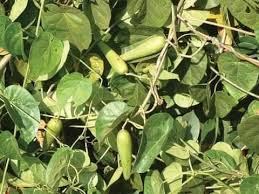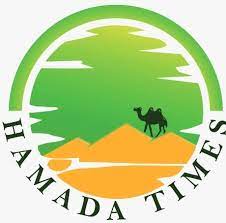By Musa Abdulsalam Saad
Many assume that using local herbs for healing has disappeared in Northern Nigeria. However, a closer look at rural communities shows otherwise. One plant that continues to play a central role in Hausa medicine is Ganye Yadiya, a herb highly valued for its perceived healing powers and cultural significance.
According to the World Health Organization (WHO), about 80 percent of people in Africa depend on traditional medicine for their primary healthcare needs. In Nigeria, this reality is evident in rural towns and villages where herbs like Yadiya remain part of family health practices, even as doctors caution against their unregulated use.
The Roots of Yadiya
Yadiya is believed to have originated in the savanna belt of West Africa, where it grows naturally on farmlands and along riverbanks. Over the years, it has spread widely, becoming a household herb in Northern Nigeria.
Known as a “cleanser” in many Hausa households, its use stretches back generations, with elders passing on both the methods of preparation and the belief in its healing power.
‘Why We Still Use Yadiya’
Despite the availability of hospitals and modern drugs, many residents continue to trust Yadiya.
In Bagauda, 72-year-old Hajiya Salamatu recalled how she grew up with the herb.
“When I was young, my mother would always give us Yadiya tea whenever we had stomach pain or fever. I still prepare it the same way today. It calms the body, and even when I am not sick, I take it because it makes me feel light and refreshed,” she said.
Malam Idris, a farmer in the same community, also makes Yadiya part of his daily life.
“I drink Yadiya not only when I am unwell but as a daily tonic. It helps me breathe better, especially during the cold season, and I believe it keeps my blood clean,” he explained.
For Amina Awwalu, a mother of two, Yadiya has a special role in women’s health.”After my second childbirth, I had irregular bleeding. My aunt gave me Yadiya to drink for two weeks, and I noticed a difference. Since then, whenever I feel weak or tired, I use it. I know doctors warn us, but for me, it works,” she said.
Healing and Chronic Illness
In Gandu Albasa, residents highlighted how Yadiya is used not just for minor ailments but also for chronic conditions such as diabetes.
Alhaji Sule, a diabetic patient, explained:
“Doctors gave me medicine, but I also take Yadiya water every morning. It reduces the sugar spikes and helps me feel lighter. I cannot stop it because I notice a difference whenever I leave it for some days.”
Malam Abdullahi, who also lives with diabetes, said Yadiya helps him manage fatigue.”I started using Yadiya after advice from an elder. It doesn’t replace my drugs, but it helps me control tiredness and weakness that come with the condition,” he said.Mustapha, a younger resident, uses the herb for wellness.”I use Yadiya because of its benefits to the body. Even if I am not ill, I drink it. It makes me active and keeps me going through the day,” he said.
For Amina, a 25-year-old woman, Yadiya provides relief during menstruation.”Whenever my period comes with pain, I boil Yadiya leaves and drink. It reduces the cramps and helps me continue with my work. I prefer it to tablets because it is natural,” she said.
Kabiru, another resident, expressed his full reliance on the herb:
“I don’t take medicine or injections when I am sick. I always drink Yadiya instead. After drinking it, I feel better, sometimes even more than those who take medicine. For me, Yadiya is enough,” he said.
Insights from a Traditional Doctor
To understand more about Yadiya from a professional cultural perspective, i interviewed Alhaji Musa Haruna, a well-known traditional doctor in Tiga Kano with over 20 years of experience in herbal medicine.
According to him, Yadiya has long been a trusted herb for treating both common and complex ailments.
“In our tradition, Yadiya is called (body purifier). It works by cleansing the blood and supporting internal organs. I use it in combination with other herbs for patients suffering from malaria, typhoid, and even early stages of diabetes,” he explained.
On the question of dosage, Haruna admitted that traditional medicine lacks standardization but emphasized the importance of experience and guidance.
“Not everyone knows how to prepare Yadiya correctly. Some people boil it too long, making it too strong. Others take it in large quantities, which can cause stomach upset. But if guided by someone who understands the plant, it can be very beneficial,” he said.
He also stressed the need for collaboration between traditional healers and modern doctors.
“We are not against hospitals. In fact, many times we send our patients to doctors when we see the case is beyond herbs. What we ask is respect for our knowledge, because herbs like Yadiya have saved lives long before hospitals arrived,” he concluded.
Doctors Warn Caution
Health experts, however, urge caution.
Dr. Nura, a physician in Gandu Albasa, acknowledged the cultural importance of Yadiya but warned against misuse.
“We do not deny that Yadiya may contain useful natural compounds like antioxidants, but the problem is dosage. People use it in different ways, boiling, soaking, or grinding, without knowing the right quantity. Taken excessively, it could irritate the stomach or even interfere with prescribed medication,” he said.
A nurse in Gandu Albasa also advised against overdependence.
“Some herbs may provide relief, but women especially must be careful. For instance, Yadiya may interfere with diabetes or blood pressure treatment. Proper nutrition, rest, and medical supervision are safer for long-term recovery,” she said.
Benefits and Risks
Benefits reported by users include:
Relief from stomach upset, fever, and respiratory issues.
Believed to purify the blood and boost vitality.
Used for menstrual regulation and reproductive health.
Some diabetic patients say it reduces fatigue and sugar fluctuations.
Affordable and widely available in rural areas.
Challenges and risks include:
No standardized dosage.
Possible digestive irritation.
Potential interaction with prescribed drugs.
Limited scientific evidence on safety and effectiveness.
Culture and Symbolism
Beyond treating illness, Yadiya also plays a cultural role. It is used in post-childbirth care, purification rituals, and even as a protective charm believed to ward off evil. These traditions explain why the herb continues to thrive in Hausa society despite warnings.
Balancing Tradition and Science
Experts argue that the way forward is not to abandon traditional medicine but to integrate it safely.
“We must respect the heritage of our people, but also encourage research so that herbs like Yadiya can be studied properly. Instead of rejecting traditional medicine outright, it is better to integrate it safely with modern healthcare,” Dr. Nura said.
The Federal Ministry of Health has, in recent years, announced plans to strengthen research on traditional medicine and integrate it into the national health system. The aim is to ensure safety, regulate practices, and build a framework where herbs like Yadiya can be properly tested and standardized.
For many Hausa families, Ganye Yadiya is more than just a leaf. It is a bridge between culture and medicine, between the wisdom of elders and the caution of modern science.
But as doctors warn, careful use, proper research, and education are essential if such age-old remedies are to remain safe and beneficial for future generations.


